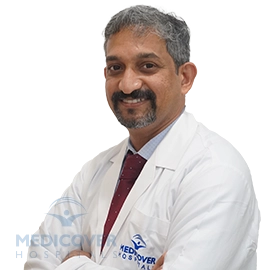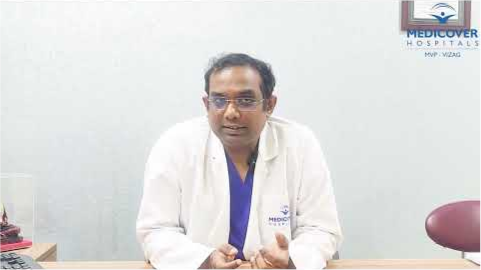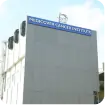What is a Lumpectomy?
A lumpectomy (also called partial mastectomy or segmentectomy) is a breast-conserving surgery in which a surgeon removes a tumor from the breast while leaving most of the breast intact.
Unlike a mastectomy, where the entire breast is removed, lumpectomy aims to preserve the natural shape of the breast while still ensuring that all cancer cells are removed.
Lumpectomies can be performed for two main reasons:
- Diagnostic Lumpectomy: Sometimes used to test whether a tumor is malignant (cancerous) or benign (non-cancerous).
- Therapeutic Lumpectomy: More commonly performed as treatment for early-stage breast cancer, when the tumor is small and localized.
The primary goal of lumpectomy is to eliminate all cancer cells by removing the tumor along with a small margin of healthy surrounding tissue, while maintaining breast appearance. Most patients will also undergo radiation therapy after lumpectomy to further reduce the risk of recurrence.
Types of Lumpectomy Procedures
- Standard Lumpectomy: Removes the tumor along with a small margin of healthy surrounding tissue. This is the most commonly performed lumpectomy type.
- Oncoplastic Lumpectomy: Combines cancer removal with cosmetic reshaping of the breast, aiming for better appearance and symmetry post-surgery.
- Wire-Localized Lumpectomy: This involves placing a thin wire to locate small or non-palpable tumors before surgery, for precise placement.
- Sentinel Node Biopsy (Optional): Performed during lumpectomy to evaluate whether cancer has spread to the lymph nodes under the arm.
1 to 2 Hours
Surgery Duration
General Anesthesia
Anesthesia Used
4-6 Weeks
Full Recovery Timeline

What Are the Indications for a Breast Lumpectomy?
A breast lumpectomy is a breast-conserving surgical option for women with early-stage breast cancer or certain non-cancerous breast conditions that require tissue removal. It is not the right choice for everyone, but for eligible patients, it offers effective treatment while preserving most of the breast.
This procedure is part of a broader cancer care plan and is almost always followed by radiation therapy to reduce the risk of cancer returning.
What conditions does a lumpectomy treat?
A lumpectomy procedure is used to manage several breast conditions, including:
- Early-stage invasive breast cancer: When the tumor is small (4 cm or less), localized, and has not spread. Best suited for stage I or II cancers.
- Ductal Carcinoma in Situ (DCIS): A non-invasive condition involving abnormal cells in the milk ducts. While not life-threatening on its own, DCIS can increase the risk of invasive cancer.
- Precancerous or suspicious breast lumps: Abnormal cells or atypical hyperplasia seen in biopsy may require surgical removal to prevent future cancer.
- Certain benign breast tumors: Rarely, a non-cancerous lump with unusual features may be removed to rule out malignancy.
The goal of breast-conserving surgery is to remove all abnormal tissue with clear margins while maintaining the natural breast shape.
When would a doctor recommend lumpectomy surgery?
Your doctor may suggest a partial mastectomy if:
- The tumor is small and limited to one breast area
- There is only one tumor (or multiple close together that can be removed through a single incision)
- You are a candidate for radiation therapy after surgery
- Breast size allows tissue removal without major cosmetic changes
- You do not have connective tissue diseases (such as lupus or scleroderma) that interfere with radiation
- You are not pregnant, since radiation cannot be given during pregnancy
- There is no prior history of radiation to the same breast
This approach is usually not recommended for large or widespread tumors, inflammatory breast cancer, or when multiple tumors are located in different areas.
Why is a lumpectomy done?
The main purposes of lumpectomy surgery are to:
- Remove cancerous or precancerous tissue completely
- Conserve as much healthy breast tissue as possible
- Preserve the natural breast shape and appearance
- Provide an alternative to mastectomy when safe and effective
For many women, maintaining their breast helps with body image, confidence, and emotional well-being. Clinical studies confirm that lumpectomy with radiation offers survival rates equivalent to mastectomy in early-stage breast cancer.
How should I prepare before lumpectomy surgery?
To prepare for lumpectomy surgery:
- Medical Evaluation: Your surgeon will review your overall health, medical history, and current medications. Imaging tests (such as mammograms, ultrasounds, or MRIs) and sometimes a biopsy are used to confirm the diagnosis and guide surgical planning.
- Preoperative Instructions: You may be asked not to eat or drink for several hours before surgery, especially if general anesthesia is planned.
- Medication Review: Tell your surgeon about all medications, vitamins, and supplements you take. Certain drugs, such as blood thinners or aspirin, may need to be paused.
- Lifestyle Preparation: Avoid smoking and limit alcohol, as both slow down healing and increase risks.
- Practical Planning: Arrange for someone to drive you home after surgery and help during the first 24-48 hours. Wear loose, comfortable clothing on the day of surgery.
What tests are done before lumpectomy surgery?
Before a lumpectomy procedure, your care team may order:
- Imaging Tests: Mammogram, ultrasound, or MRI to locate the tumor and check for additional abnormalities.
- Biopsy: If not already done, a biopsy confirms whether the tumor is cancerous or benign.
- Blood Tests: To assess overall health, kidney and liver function, and blood clotting ability.
- Electrocardiogram (ECG): In some patients, especially those with heart conditions or older age, to check heart health before anesthesia.
- Localization Procedure: For small or non-palpable tumors, a thin wire, seed, or marker may be placed in the breast before surgery to guide the surgeon precisely to the tumor site.
Should I stop eating, drinking, or taking medicines before lumpectomy surgery?
- Eating & Drinking: Most patients are instructed not to eat or drink anything after midnight before surgery, especially if undergoing general anesthesia. Clear instructions will be given by your anesthesiologist.
- Medications: Your surgeon may advise stopping certain medicines such as:
- Blood thinners (warfarin, clopidogrel, aspirin)
- Anti-inflammatory drugs (ibuprofen, naproxen)
- Herbal supplements like ginkgo, garlic, or ginseng that increase bleeding risk
Always follow your doctor's exact instructions, never stop or change medications without medical guidance.
What happens before lumpectomy surgery?
On the day of the lumpectomy procedure:
- You'll check into the hospital or surgical center.
- A nurse will review your records and place an IV line for fluids and medications.
- The surgical site will be cleaned and prepped.
- Your anesthesiologist will discuss the type of anesthesia (general or local with sedation) and answer any last-minute questions.
- If tumor localization is required, it may be done just before surgery in the radiology department.
- You'll then be taken into the operating room for the procedure.
How Is Lumpectomy Surgery Performed?
During a lumpectomy surgery, the surgeon removes the cancerous or abnormal lump along with a margin of healthy surrounding tissue to ensure all abnormal cells are taken out.
- The procedure is usually done under general anesthesia, meaning you'll be asleep and pain-free.
- If the tumor is small or difficult to feel, a localization technique (such as a thin wire, marker seed, or dye) may be used to guide the surgeon precisely to the tumor.
- The surgeon makes a small incision over the tumor, removes the lump and surrounding margin, and then closes the incision with dissolvable stitches or surgical glue.
- If a sentinel lymph node biopsy is needed, the surgeon may also remove nearby lymph nodes to check whether cancer has spread.
The goal is to completely remove the tumor while preserving as much of the breast's natural shape as possible.
Who Performs Lumpectomy Surgery?
Lumpectomy surgeries are performed by breast surgeons or surgical oncologists specialising in breast cancer treatment and breast surgery.
- Primary Care Physicians: Consult your physician for breast concerns or symptoms. They can refer you to a specialist for further evaluation.
- Breast Centers: Research and contact breast centres with experienced breast surgeons or oncologists.
- Hospitals with Breast Surgery Departments: Contact hospitals with specialized breast surgery departments that offer lumpectomy services.
- Breast Cancer Support Organizations: Organizations specializing in breast cancer support can provide information, resources, and guidance.
- Referring Physicians: Your primary care physician or referring specialist can provide referrals to breast surgeons or surgical oncologists.
What Happens During a Lumpectomy Procedure?
Below are the typical lumpectomy surgery steps you can expect:
- Anesthesia: General anesthesia is administered to ensure your comfort and pain.
- Incision: The surgeon makes an incision over the breast area of the tumor. The incision's location and size depend on the tumor's characteristics.
- Tumor Removal: The surgeon carefully removes the tumor along with a small margin of healthy tissue surrounding it.
- Biopsy: In some cases, a biopsy may be performed to check if the cancer has spread to lymph nodes.
- Wound Closure: The incision is stitched closed, and sterile dressings are applied.
- Pathology Examination: The removed tissue is sent for lab analysis to ensure all cancerous cells have been removed and to determine the tumor's characteristics.
Recovery After Lumpectomy Surgery Procedure
After a lumpectomy procedure, it's normal to experience:
- Pain and discomfort around the incision site, usually managed with prescribed pain relievers or over-the-counter medications.
- Swelling and bruising, which gradually improves within a few days to weeks.
- Tiredness or fatigue, especially if anesthesia was used.
- A dressing or bandage over the surgical site, and in some cases, a small drain to remove excess fluid.
Most patients go home the same day, but your surgeon will give you instructions for wound care, pain management, and when to remove or change dressings.
When can I return to normal activities after lumpectomy surgery?
Recovery after a lumpectomy surgery procedure varies for each person, but general guidelines include:
- Light activity such as walking can usually be resumed within a day or two.
- Strenuous activities, heavy lifting, and vigorous exercise should be avoided for at least 1-2 weeks, or until your surgeon approves.
- Work: Many patients return to desk jobs within a week, but jobs requiring physical effort may take longer.
- Driving: You can typically resume once you're no longer taking strong pain medications and feel comfortable moving your arm.
Gentle arm mobility exercises are often recommended early in recovery to prevent stiffness
Are lifestyle changes required after recovery from lumpectomy surgery?
Yes, certain lifestyle adjustments can support healing and long-term breast health after a lumpectomy:
- Diet: Eat a balanced, nutrient-rich diet to boost recovery and maintain overall health.
- Exercise: Gradually return to normal activity, focusing on light exercises and stretching to restore strength and flexibility.
- Lymphedema prevention: If lymph nodes were removed, take precautions such as avoiding tight clothing on the affected arm, protecting the arm from cuts or injuries, and discussing preventive strategies with your doctor.
- Supportive clothing: Wearing a soft, supportive bra can minimize discomfort during recovery.
- Medical follow-up: Regular check-ups and imaging (mammograms or ultrasounds) are essential to monitor for recurrence or new changes.
These changes not only aid healing but also improve overall quality of life and reduce long-term risks.
What are the benefits of a lumpectomy procedure?
A lumpectomy surgery offers several advantages, especially for women with early-stage breast cancer:
- Preserves the natural breast shape: Unlike a mastectomy, lumpectomy removes only the tumor and a small margin of surrounding tissue, allowing you to keep most of your breast.
- Minimally invasive: The surgery is less extensive compared to full breast removal, which means fewer physical changes and faster recovery.
- High success rate: For early-stage breast cancer or non-invasive tumors like DCIS, lumpectomy combined with radiation therapy is just as effective as mastectomy in preventing recurrence.
- Shorter recovery time: Most women return to daily activities within 1-2 weeks.
- Emotional and psychological benefits: Many women feel more confident and comfortable after lumpectomy since it allows breast conservation.
What are the risks and complications of lumpectomy surgery?
As with any surgical procedure, a lumpectomy operation carries potential risks:
- Infection or bleeding at the incision site.
- Seroma (fluid buildup) that may need draining.
- Poor wound healing in some patients.
- Changes in breast shape or size, especially if a large portion of tissue is removed.
- Need for additional surgery if pathology shows cancer cells at the margin (meaning not all cancerous tissue was removed).
- Scarring or firmness in the breast tissue over time.
What are the side effects of a lumpectomy?
Side effects after lumpectomy treatment may include:
- Numbness, tingling, or pain around the incision site due to nerve irritation.
- Swelling and bruising, which usually improves within a few weeks.
- Temporary fatigue, particularly if radiation therapy follows surgery.
- Skin changes near the surgical area, such as redness, firmness, or sensitivity.
Most side effects are temporary and improve as healing progresses. Your surgeon will provide instructions for pain relief, wound care, and long-term monitoring.
How Much Does A Lumpectomy Cost?
The lumpectomy cost in India usually ranges between Rs. 1,00,000 - Rs. 2,50,000.
- In Hyderabad, the lumpectomy surgery cost is lower, around Rs. 85,000 - Rs. 1,40,000.
- In premium private hospitals, the breast lumpectomy cost may go up to Rs. 5,50,000 if advanced care and facilities are included.
Factors Affecting Lumpectomy Cost
Several factors can change the lumpectomy surgery price in India, including:
- Hospital type and location (metro cities and private hospitals are more expensive)
- Surgeon's expertise
- Type of lumpectomy procedure (simple, image-guided, or oncoplastic)







































































